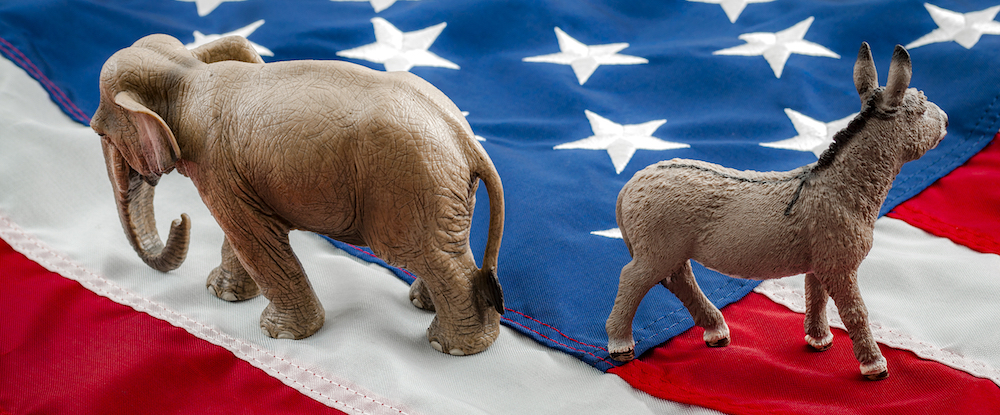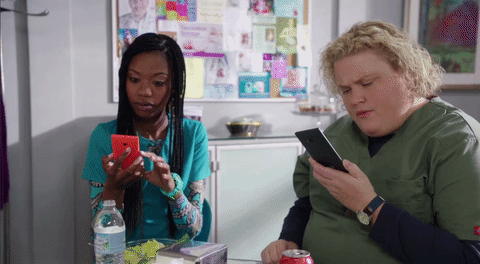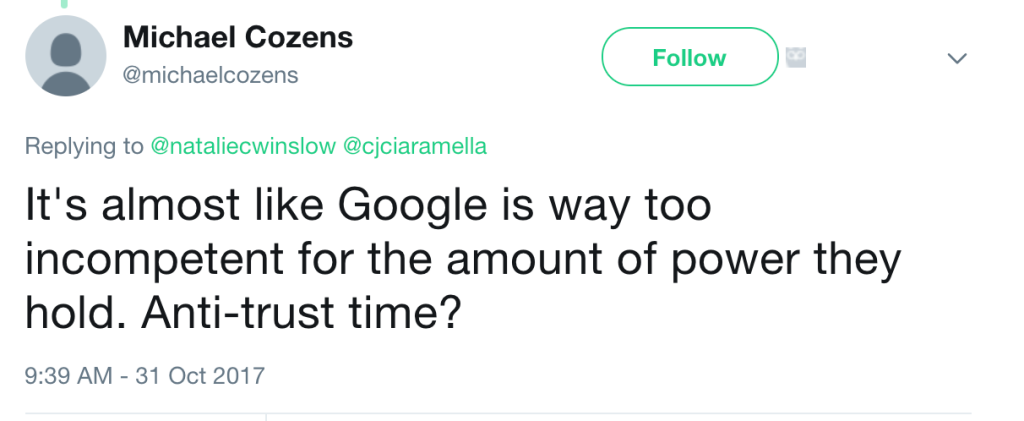What Do Liberals and Conservatives Agree on?
I don’t need to tell you what a horrible year 2017 has been for political animus and deepening divisions in the U.S. It’s been written about time and time and time again. And you know; you’re probably living it, too.
But today I learned something fascinating and slightly unexpected about where the left and the right–even the radical left and the radical right–seem to agree.

For the past couple years, Twitter has been a bastion of childish political harassment and violent partisan threats, and its very existence has produced troll farms of propaganda. We’ve written before about cyberbullies and trolls, and Twitter is a great enabler of the two. This isn’t to say this is all Twitter has done. I’ve made some great connections through Twitter, and I do think it’s useful for Twitter to be part of your social media strategy overall. But aside from business connections and a few new friends, I often approach Twitter with my guard up, knowing I’ll encounter some vitriol that frankly doesn’t deserve my–or your–time.
But check this out. Here’s where the left and right are coming together on Twitter. What happens next may shock you!

Several people complained that Google Docs recently shut down some of the documents they were working on, with Google claiming the documents violated their terms of service. These documents included something about post-Socialism life in Eastern Europe and wildlife crimes. Potentially incendiary topics, but not necessarily.
I chimed in that Google Adwords recently blocked some of the keyphrases I wanted to bid on that included the words “jewish organization” in them. After about a week of manual reviews, Google apologized and reactivated the keywords.
Someone responded to my tweet with this:

Now this Twitter conversation started blowing up.
I began paying attention to who was retweeting me and commenting on it, and this community contained the entire political spectrum, from both the extreme right and left, as well as the shrinking middle. Libertarians, Democrats, Socialists, Anarchists, Republicans, and people whose political alliances can only be described as #MAGA were all chiming in. And they were in agreement!
So what do the right and the left agree on? They are universally angry, scared, frustrated, or confused by the amount of power tech companies have over our lives.
There were moments that almost slipped into the typical partisan bickering. One Twitterer said that Google has a left-wing agenda, which is why it’s banning YouTube videos that aren’t PC enough. I pointed out that Google’s algorithm seems to be blocking content on both the left and the right, which was obvious from the original tweet I was replying to.
Rather than argue with me about why one side was more persecuted than another, this person actually just “liked” my tweet and the subsequent response from someone else arguing that the problem was unchecked power, not partisanship.
I couldn’t believe it.
Here we all were, in a civil conversation about a topic we all could agree on. Mind blown.

What does this mean, then? I think it means a lot for Google, Facebook, Amazon, Twitter, and other tech giants who harvest all of our online data all of the time. And that also carries over to people like us, who work to get businesses and organizations found on the web using the tools available to us. And those tools are, of course, Google, Facebook, Amazon, Twitter.
We all depend way too much on these tech giants. Our livelihoods, habits, needs, and compulsions as consumers and producers of both stuff and information are shaped and enabled by these enormous companies. We give them so much power because we’ve decided that we need them. We’ve let them create this online world for us, and that’s a huge responsibility for them but also for us: we need to hold them accountable.
I recently discovered an organization that’s working to combat the deleterious effects that being constantly plugged in has on us, and these efforts are being led by Tristan Harris, who worked previously for Google. “Tristan Harris spent three years as a Design Ethicist at Google understanding how technology hijacks the evolutionary vulnerabilities of the human mind to control human attention.” Now he’s working to protect us from technology products.
Check out one of Tristan’s recent talks below.
I have a glimmer of hope that we can mend things, politically, but those hopes are fading. If we can come together on areas that we agree on, like making technology companies more transparent and accountable, then maybe the future isn’t too bleak.
Have something to say?